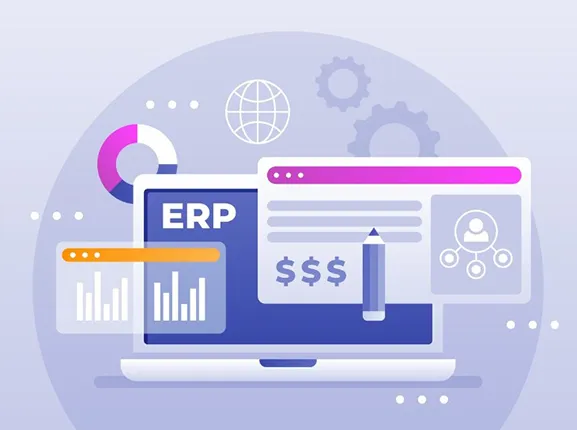ERP vs CRM can be explained as follows: CRM systems focus on front-office tasks that deal with clients, including sales force automation, customer support, and marketing. They track client interactions, manage contacts, and analyze client data. Conversely, ERP systems handle back-office tasks, offering solutions for inventory, accounting, order processing, and HR. ERP systems ensure seamless data flow across the organization, helping all departments work together with real-time data, thus boosting efficiency and cutting costs.
ERP vs CRM: CRM and ERP are two essential software systems used by businesses to streamline operations and improve efficiency. CRM is designed to manage a company’s interactions with current and potential customers, enhancing customer service, sales, and marketing efforts. It helps businesses understand customer needs, track sales leads, and manage customer relationships to boost customer satisfaction and retention. On the other hand, ERP integrates various business processes across departments such as finance, HR, manufacturing, and supply chain, providing a unified system to improve efficiency and decision-making.
What is ERP vs CRM? CRM vs ERP boils down to internal efficiency versus customer relationship enhancement. While ERP optimizes internal workflows and data management, CRM is geared towards improving external customer interactions and relationships. Both systems are crucial for the overall success of a business, but they serve distinct purposes.
CRM vs ERP
ERP system vs. CRM are two crucial types of software that businesses use to improve their operations and customer relations. ERP system stands for Enterprise Resource Planning, and it integrates various business processes across departments such as finance, HR, and supply chain. This comprehensive integration allows for seamless data flow, improving efficiency and decision-making.
CRM systems, or Customer Relationship Management systems, focus on managing a company’s interactions with current and potential customers. They enhance sales, customer support, and marketing efforts by tracking customer interactions and managing customer data.
Key Differences
- ERP software covers back-office functions, including supply chain management, inventory, and human resources.
- CRM is more focused on front-office activities like sales and customer service.
- ERP implementation involves integrating all departments within a company, while CRM implementation focuses on customer-facing departments.
Examples of popular ERP and CRM systems include SAP for ERP and Dynamics CRM for CRM. Both systems can be customized to fit the specific needs of an organization.
Other Concepts
MRP (Material Requirements Planning) is often considered a component of ERP systems, focusing on production planning and inventory control. The difference between CRM and ERP is primarily in their focus areas: ERP systems handle internal business processes, while CRM systems manage customer interactions.
In conclusion, both ERP system vs. CRM play vital roles in a business. While ERP focuses on internal efficiency, CRM enhances customer relationships. Integrating both can lead to a more streamlined and customer-focused business operation.
